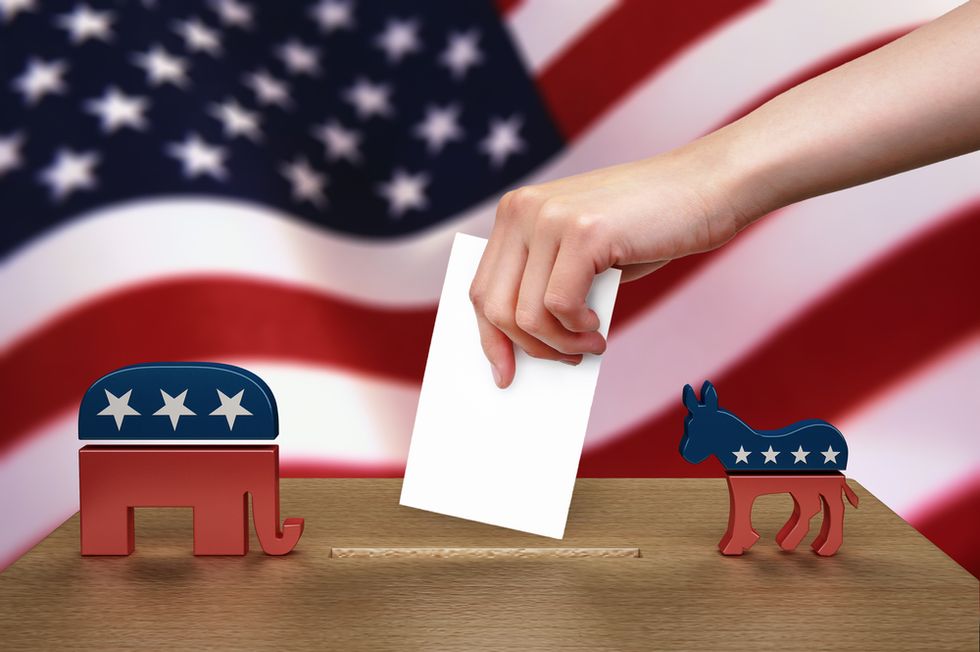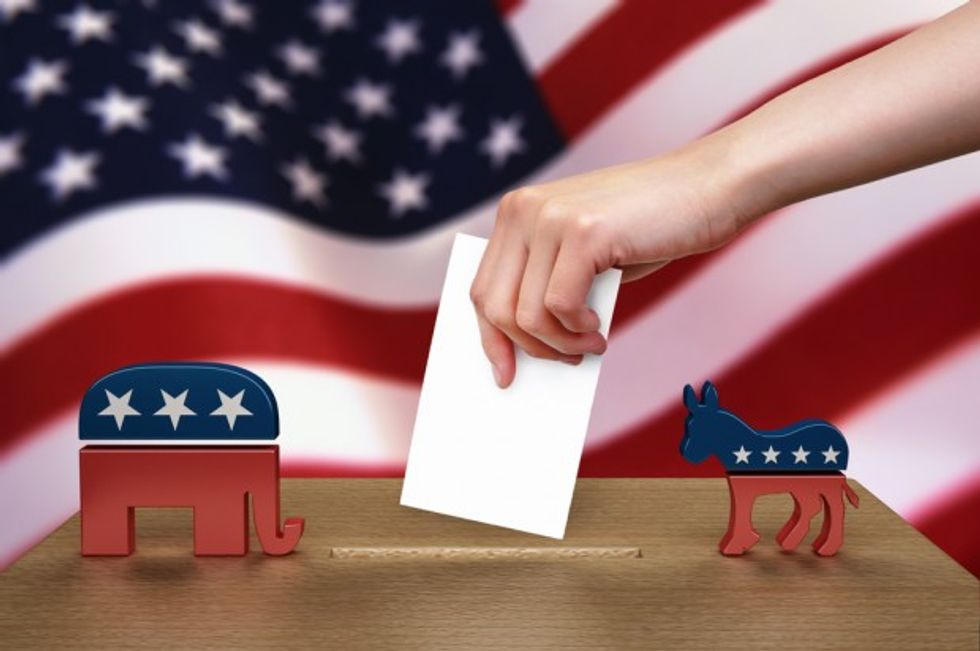
Shutterstock

You, the individual American citizen, do not actually vote for the president of the United States. Now, most people, I hope, know that their vote tells the Electoral College of your state how to vote for the president.
What you probably didn’t know is that this hasn’t always been the case, in fact it wasn’t for the first 12 presidential elections. In 1800 10 out of 16 states (62 percent) did not have a popular vote to decide the presidency; their state legislatures decided for them. Not only was this election by the state legislators completely legal, and completely constitutional (Article Two Section One), it was the preferred method.

In Federalist No. 68 Alexander Hamilton explains (emphasis added):
“The choice of SEVERAL, to form an intermediate body of electors, will be much less apt to convulse the community with any extraordinary or violent movements, than the choice of ONE who was himself to be the final object of the public wishes. And as the electors, chosen in each State, are to assemble and vote in the State in which they are chosen, this detached and divided situation will expose them much less to heats and ferments, which might be communicated from them to the people, than if they were all to be convened at one time, in one place.”
For 43 years, approximately half of the country did not vote for their commander-in-chief. Today, while we do cast our ballots, those ballots merely instruct the Electoral College how we would like them to vote.
At a recent party meeting Arizona House Majority Leader Steve Montenegro (R) explained his support of The National Popular Vote Interstate Compact stating where control over our Electoral College is actually vested:
“I need to make it clear that the state legislature is in command of those electors.”
This is accurate in theory, unless you have a “faithless-elector,” which has happened enough that they gave it a cool name.
According to FairVote there have been 157 faithless electors since the first Electoral College (71 due to the death of a candidate, three abstained and 82 because they felt like it.). A faithless elector breaks the rules and votes for someone else, which is illegal in 29 states and Washington, D.C. with fines that have never been enforced. These days the “faithless” votes are simply voided.
Now let’s bring it from the general election back to the primaries. We’re coming up on what will very likely be a contentious brokered convention for the Republican nomination. As Chris Enloe of TheBlaze reported:
A member of the Republican National Committee’s rules-making body said Wednesday that ultimately the party will decide who the GOP nominee is, not voters.“The media has created the perception that the voters will decide the nomination,” Curly Haugland, who sits on the RNC rules committee, said in an interview with CNBC. "That’s the conflict here.”
He’s right: out of the 2,472 total Republican delegates, 126 of them are free to vote as they please right from the start of the convention as they are not pledged delegates. The remaining 2,346 delegates are SUPPOSED to vote in accordance with their States’ Constitution (either by popular vote or proportionally), but only in the first roll call. And even then there is still occasional freelancing, in which a delegate breaks the rules and votes for a different candidate (with little to no consequences). In a convention where the nominee holds the 1,237 votes needed this is largely a formality of pomp and parade. However, if there is no majority, than according to the Call of the 2016 Republican National Convention, Rule 40(e) applies:
“If no candidate shall have received such majority, the chairman of the convention shall direct the roll of the states be called again and shall repeat the calling of the roll until a candidate shall have received a majority of the votes entitled to be cast in the convention.”
So let’s review.
First: Your Republican primary vote only counts if there is a clear majority at the convention; if the vote goes to a second roll call, it’s pretty much worthless. And for that matter, your delegate could haul off and break the rules anyway with very little consequence.
Second: Your general election vote for president is counted and your state legislature controls how your electors vote. But if your elector goes rogue, their vote (and yours) are voided. Also, ultimately your state legislature could vote to silence your presidential vote AT ANY TIME, and it’s completely constitutional.
–
TheBlaze contributor channel supports an open discourse on a range of views. The opinions expressed in this channel are solely those of each individual author.